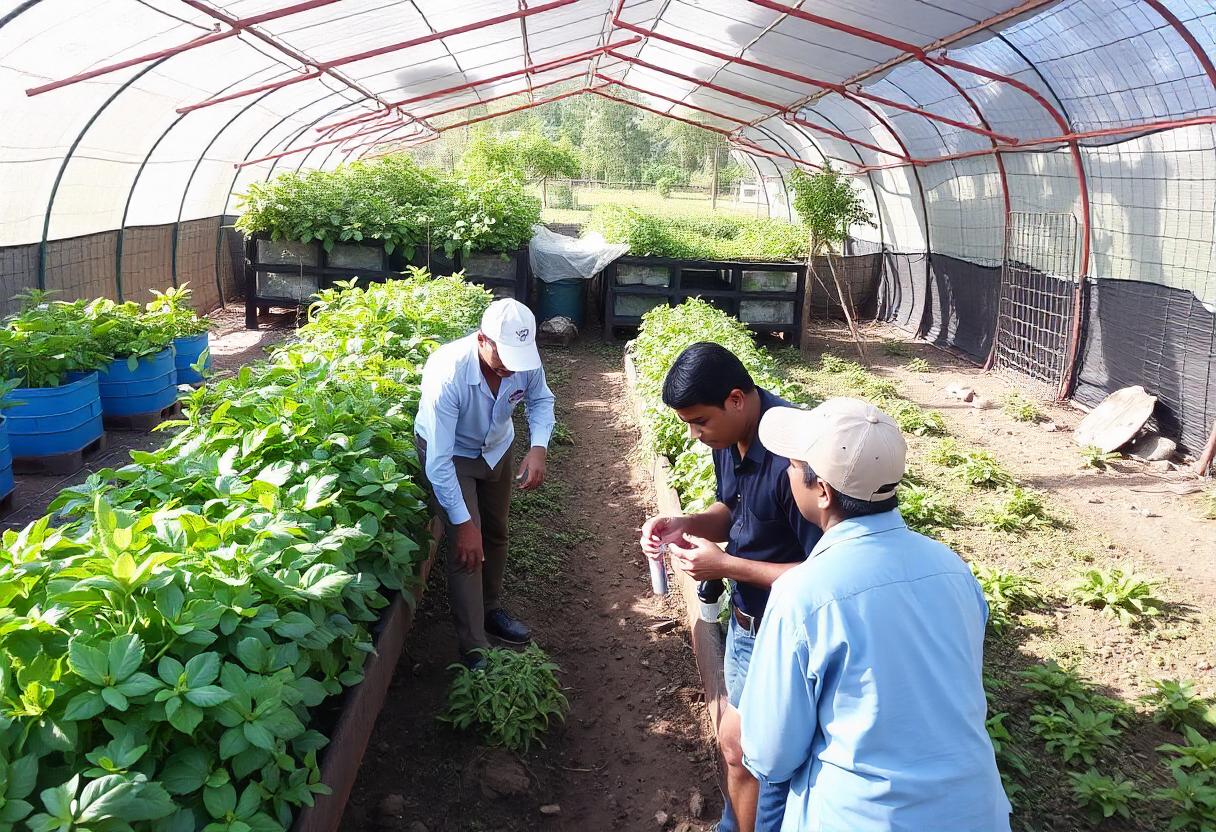
Agriculture training plays a pivotal role in enhancing the efficiency and sustainability of farming practices. It encompasses a wide range of educational activities aimed at equipping farmers, agronomists, and agricultural professionals with the skills and knowledge needed to optimize agricultural productivity and adapt to evolving challenges.
Types of Agriculture Training Programs
1. Crop Management Training
Crop management training focuses on the techniques and practices involved in growing different types of crops. This includes understanding crop rotation, pest and disease management, soil fertility, and irrigation practices. Farmers learn how to maximize yield, reduce losses, and manage resources effectively.
2. Livestock Management Training
Livestock management training is tailored for those involved in animal husbandry. It covers areas such as animal health, nutrition, breeding, and housing. Proper training ensures that livestock are well cared for, which can lead to improved productivity and reduced disease incidence.
3. Sustainable Farming Practices
Sustainable farming training emphasizes methods that promote environmental health and resource conservation. This includes practices like organic farming, reduced tillage, and agroforestry. Training programs often focus on minimizing environmental impact while maintaining farm profitability.
4. Agricultural Technology and Innovation
With advancements in technology, agricultural training now includes the use of modern tools and innovations. This covers topics like precision farming, data management, and the use of drones and sensors. Training helps farmers integrate new technologies to enhance efficiency and decision-making.
5. Business and Management Skills
Agriculture training also involves business and management skills, crucial for running a successful farming enterprise. This includes financial management, marketing strategies, and business planning. Training in these areas helps farmers improve their operations and navigate market challenges.
Benefits of Agriculture Training
1. Enhanced Productivity
Proper training leads to better knowledge and application of farming techniques, which directly contributes to increased crop and livestock productivity. By implementing best practices, farmers can achieve higher yields and better-quality produce.
2. Improved Resource Management
Training helps farmers manage resources more effectively, including water, soil, and nutrients. Efficient use of resources reduces waste, lowers costs, and promotes sustainable farming practices.
3. Increased Adaptability
Agriculture training prepares farmers to adapt to changes in climate, market conditions, and technological advancements. By staying informed about new developments and trends, farmers can adjust their practices to remain competitive and resilient.
4. Enhanced Environmental Stewardship
Training in sustainable farming practices helps farmers reduce their environmental footprint. This includes practices that conserve soil, water, and biodiversity, contributing to overall environmental health.
5. Better Health and Safety
Training in livestock and crop management ensures that health and safety standards are met. This includes proper handling of chemicals, safe equipment use, and effective disease management, leading to healthier produce and safer working conditions.
Methods of Agriculture Training
1. Workshops and Seminars
Workshops and seminars provide hands-on learning opportunities and expert insights. These sessions often cover specific topics and allow participants to engage with industry professionals and peers.
2. Online Courses and Webinars
Online courses and webinars offer flexible learning options, allowing individuals to access training materials from anywhere. These formats often include interactive elements, such as forums and quizzes, to enhance learning.
3. On-Farm Training
On-farm training involves practical, in-field instruction where farmers can learn and apply techniques directly on their own or others’ farms. This method provides real-world experience and immediate feedback.
4. Extension Services
Agricultural extension services provide ongoing support and education to farmers through government or non-governmental organizations. Extension agents offer advice, training, and resources to help farmers implement best practices and solve problems.
5. Research and Development Programs
Research and development programs focus on innovative practices and technologies. Training in this area often involves collaboration with research institutions and the implementation of new findings on farms.
Agriculture training is essential for the growth and development of the agricultural sector. By equipping individuals with the necessary skills and knowledge, it fosters innovation, improves productivity, and supports sustainable farming practices.